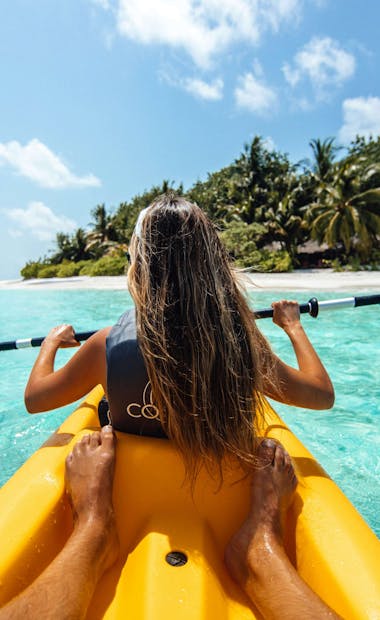South Africa Tours
Explore beautiful Cape Town, wander through the Garden Route and experience epic safari trips
Popular tours
- Save28%
 View Tour
View TourSouth Africa & Eswatini - 10 Days
- Johannesburg to Johannesburg
- Age group: 16 - 79
- Max group size: 16
Was:£1,895From£1,367 - Save14%
 View Tour
View TourSouth Africa Highlights - 14 Days
- Johannesburg to Cape Town
- Age group: 16 - 79
- Max group size: 16
Was:£3,155From£2,700 - Save1%
 View Tour
View TourSouth Africa Adventure - 12 Days
- Johannesburg to Cape Town
- Age group: 18 - 39
- Max group size: 18
Was:£2,099From£2,078 - Save2%
 View Tour
View TourUltimate South Africa - 18 Days
- Cape Town to Cape Town
- Age group: 12 - 100
- Max group size: 18
Was:£3,579From£3,507  View Tour
View TourSouth Africa Adventure - 12 Days
- Johannesburg to Cape Town
- Age group: 18 - 49
- Max group size: 18
From£2,630- Save26%
 View Tour
View TourSolo-ish South Africa - 10 Days
- Cape Town to Johannesburg
- Age group: 18 - 100
- Max group size: 1
Was:£2,549From£1,874
South Africa Tours
Welcome to the land of vibrant cultures, breathtaking landscapes, and incredible wildlife encounters—South Africa! Embark on an unforgettable journey with our South Africa tours and discover a country that captures the heart and soul of every traveler. From thrilling wildlife safaris to captivating cultural experiences, South Africa offers a diverse range of attractions and activities that will leave you awe-inspired at every turn.
Our South Africa holidays invite you to explore a land of contrasts, where modern cities seamlessly blend with rugged wilderness, and ancient traditions coexist with contemporary lifestyles. Get ready to immerse yourself in the rhythm of this captivating nation as you traverse its stunning landscapes and engage with its warm and welcoming people.
One of the highlights of a trip to South Africa is undoubtedly its remarkable wildlife. Embark on thrilling game drives in world-renowned national parks such as Kruger National Park, where the majestic Big Five—elephants, lions, leopards, rhinos, and buffalos—roam freely in their natural habitats. Witness the mesmerizing spectacle of wildebeest migrations, marvel at graceful giraffes, and spot elusive cheetahs on the prowl. South Africa's rich biodiversity will leave you in awe as you encounter rare species and witness nature's wonders firsthand.
Beyond the wildlife, South Africa is a melting pot of cultures and traditions. Explore the vibrant city of Cape Town, nestled between the iconic Table Mountain and the turquoise waters of the Atlantic Ocean. Indulge in the city's vibrant food scene, sample award-winning wines in the picturesque vineyards of Stellenbosch, and immerse yourself in the vibrant colors and rhythms of the Bo-Kaap neighborhood. Discover the historical significance of Robben Island, where Nelson Mandela was imprisoned, and gain a deeper understanding of South Africa's complex history.
For those seeking outdoor adventures, South Africa does not disappoint. Hike to the awe-inspiring heights of Drakensberg Mountains, explore the dramatic landscapes of the Blyde River Canyon, or challenge yourself with adrenaline-pumping activities such as bungee jumping, shark cage diving, or surfing along the captivating coastline. South Africa's natural beauty offers a playground for thrill-seekers and nature enthusiasts alike.
As the sun sets, indulge in South Africa's vibrant nightlife and sample its rich culinary heritage. From gourmet dining experiences to lively street markets, you'll be tantalized by the array of flavors and fusion cuisines that reflect the country's diverse cultural influences.
At our travel agency, we curate South Africa tours that cater to every traveler's interests and desires. Whether you dream of a luxurious safari escape, a cultural immersion, or an adventurous expedition, our expert guides will ensure an unforgettable experience. Let us take care of the details, so you can fully immerse yourself in the magic and wonder of South Africa.
Book your South Africa holiday with us and unlock a world of extraordinary experiences. Prepare to be captivated by this enchanting country, where beauty, diversity, and adventure await at every turn. Let the spirit of South Africa ignite your soul and create memories that will last a lifetime.
When is the best time to visit South Africa?
The best time to visit South Africa largely depends on the specific regions and experiences you plan to pursue. South Africa experiences a diverse climate due to its vast size and varying topography. Here's a breakdown of the seasons and what each offers:
Summer (December to February): This is South Africa's peak tourist season, characterized by warm to hot temperatures and occasional rainfall. It's an ideal time to visit coastal regions such as Cape Town, the Garden Route, and the beaches of KwaZulu-Natal. It's also a great time for wildlife viewing in game reserves, including Kruger National Park.
Autumn (March to May): Autumn brings milder temperatures and less rainfall, making it a pleasant time to visit most parts of South Africa. The weather is ideal for exploring cities like Cape Town and Johannesburg, as well as the winelands of Stellenbosch and Franschhoek. Wildlife viewing remains excellent, with moderate temperatures and lush vegetation.
Winter (June to August): Winter in South Africa is generally dry, with cooler temperatures in the interior and along the coast. It's a great time to visit the arid regions, such as the Northern Cape and the Kalahari Desert, where wildlife is still abundant. The winter months also provide fantastic opportunities for whale watching along the Western Cape coast.
Spring (September to November): Spring brings pleasant temperatures, blossoming flowers, and wildlife activity. It's an excellent time to explore national parks and reserves, as the vegetation starts to bloom, making it easier to spot wildlife. The famous wildflower displays of Namaqualand in the Northern Cape are particularly stunning during this time.
It's important to note that South Africa's climate can vary within different regions and may differ from the general seasonal patterns. For instance, the northeastern parts, including Kruger National Park, can be hot and humid during the summer months. Coastal areas, such as Cape Town, may experience cooler temperatures and strong winds at times.
Consider the activities and experiences you wish to enjoy during your visit, as well as the specific region you plan to explore, to determine the best time for your South Africa tour. Regardless of the season, South Africa offers an incredible range of attractions and experiences that will leave you with lifelong memories.
Will I need a visa to travel to South Africa?
The visa requirements for traveling to South Africa depend on your nationality and the purpose and duration of your visit. Here are some general guidelines:
Visa-Free Countries: Citizens of certain countries are exempt from obtaining a visa for short visits to South Africa. These countries include the United States, Canada, the United Kingdom, most European Union countries, Australia, New Zealand, and many others. However, it's essential to check the specific visa regulations for your country of citizenship as they can change. Generally, visitors from visa-exempt countries are granted a stay of up to 90 days for tourism or business purposes.
Visa-on-Arrival: Some nationalities may be eligible for a visa-on-arrival, which allows you to obtain a visa upon arrival in South Africa. However, it's important to note that this option is only available for specific purposes, such as tourism, and for limited durations. Check with the South African embassy or consulate in your home country for the most up-to-date information on visa-on-arrival eligibility.
Visa Application: If you are not eligible for visa-free travel or visa-on-arrival, you will need to apply for a visa in advance through the South African embassy or consulate in your home country. The type of visa you require will depend on the purpose of your visit, whether it's for tourism, business, study, or work. The application process may involve submitting required documents, such as a valid passport, completed application form, proof of travel arrangements, accommodation bookings, financial statements, and a return ticket.
It is highly recommended to check the visa requirements well in advance of your planned travel dates to allow ample time for the visa application process. Visa regulations can change, so it's best to consult the official website of the South African Department of Home Affairs or contact the nearest South African embassy or consulate in your country for the most accurate and up-to-date information regarding visa requirements.
As always we recommend checking the latest country entry requirements with your national foreign travel office, for UK citizens this is the Foreign Travel Advice section of www.gov.co.uk, to view to South Africa page
What are the must see attractions when visiting South Africa?
When visiting South Africa, you'll be spoiled for choice with a plethora of must-see destinations and attractions. Here are some of the highlights that should be on every traveler's itinerary:
Cape Town: This vibrant coastal city offers a mix of natural beauty, cultural experiences, and historical landmarks. Visit the iconic Table Mountain for panoramic views, explore the picturesque Cape Peninsula, and wander through the colorful Bo-Kaap neighborhood. Don't miss a visit to Robben Island, where Nelson Mandela was imprisoned, and indulge in the city's thriving food and wine scene.
Kruger National Park: One of Africa's premier wildlife destinations, Kruger National Park is a haven for wildlife enthusiasts. Embark on exhilarating game drives or guided walking safaris to spot the iconic Big Five (elephants, lions, leopards, rhinos, and buffalos), along with an abundance of other wildlife species.
Garden Route: Stretching along the scenic coastline between Cape Town and Port Elizabeth, the Garden Route is a breathtaking region known for its lush forests, beautiful beaches, and charming towns. Explore the Tsitsikamma National Park, visit the quaint town of Knysna, and discover the stunning scenery of the Wilderness area.
Drakensberg Mountains: Located in the southeastern part of the country, the Drakensberg Mountains offer dramatic landscapes and outdoor adventures. Hike through the awe-inspiring peaks, explore ancient San rock art sites, and marvel at cascading waterfalls. It's a paradise for nature lovers and outdoor enthusiasts.
Robberg Nature Reserve: Situated near Plettenberg Bay, Robberg Nature Reserve is a must-visit for its stunning coastal scenery and abundant wildlife. Hike along the trails to enjoy breathtaking views, spot seals, dolphins, and various bird species, and soak up the beauty of the rugged coastline.
Stellenbosch and Winelands: South Africa's Winelands region, particularly Stellenbosch, offers a delightful blend of scenic vineyards, historic architecture, and award-winning wines. Take a wine tour, sample world-class vintages, and savor gourmet cuisine amidst picturesque landscapes.
Blyde River Canyon: Located in Mpumalanga province, the Blyde River Canyon is one of the largest canyons in the world, offering awe-inspiring vistas and breathtaking natural wonders. Take in the panoramic views from God's Window, visit Bourke's Luck Potholes, and marvel at the stunning Three Rondavels.
Soweto: Explore the vibrant township of Soweto, located near Johannesburg, to gain insight into the country's history and culture. Visit the Nelson Mandela National Museum, experience the bustling streets, and interact with the friendly locals to understand the resilience and spirit of South Africa.
Kgalagadi Transfrontier Park: For a unique safari experience, head to Kgalagadi Transfrontier Park, a vast wilderness area straddling South Africa and Botswana. This arid region is known for its striking red sand dunes, incredible predator sightings, and excellent birdwatching opportunities.
iSimangaliso Wetland Park: Located on the northeast coast of South Africa, iSimangaliso Wetland Park is a UNESCO World Heritage Site offering diverse ecosystems, including lakes, wetlands, and coastal dunes. Enjoy game drives, boat safaris, and witness the incredible annual turtle nesting and hatching.
These are just a few of the many incredible destinations and attractions South Africa has to offer. Each region boasts its own unique charm, natural wonders, and cultural experiences, ensuring that your visit will be filled with memorable moments at every turn.
What is the local currency in South Africa, and can I use credit cards?
The local currency in South Africa is the South African Rand (ZAR). It is advisable to carry some cash in Rand for small expenses and places that may not accept credit cards. You can easily exchange your currency to Rand at banks, exchange offices, or at the airport.
Credit cards are widely accepted in most urban areas, hotels, restaurants, and larger stores in South Africa. Visa and Mastercard are the most commonly accepted cards, followed by American Express and Diners Club, although their acceptance may be more limited. It is a convenient and secure way to make payments, and you can use your credit card for larger purchases, accommodation, and dining. However, it's always a good idea to carry some cash for emergencies and in case you come across establishments that only accept cash.
ATMs (Automated Teller Machines) are widely available in cities and towns throughout South Africa, allowing you to withdraw cash in the local currency using your debit or credit card. However, it's advisable to use ATMs located in well-lit and secure areas and to take necessary precautions to protect your card and PIN.
When using your credit card or debit card, it's recommended to inform your bank in advance about your travel plans to avoid any potential issues with international transactions. Additionally, be mindful of any foreign transaction fees or currency conversion fees that may apply to your card.
In remote areas, smaller towns, or when visiting markets or local vendors, it's advisable to have cash on hand as credit card acceptance may be limited. Always keep your cash and cards secure and be vigilant when conducting financial transactions to ensure the safety of your funds.
Overall, a combination of cash in the local currency and credit cards will provide you with flexibility and convenience during your visit to South Africa.
Is South Africa a good destination for solo travellers?
Absolutely! South Africa can be a fantastic destination for solo travelers, offering a wide range of experiences and attractions that cater to independent exploration. Here are some reasons why South Africa is a great choice for solo adventurers:
Safety: While it's important to exercise the same precautions you would in any destination, South Africa has developed a well-established tourism infrastructure and is generally considered safe for travelers. Stick to common-sense safety practices, stay informed about local conditions, and be cautious in unfamiliar areas.
Welcoming Locals: South Africans are known for their warm hospitality and friendliness towards visitors. You'll likely encounter locals who are eager to share their culture, recommend local hotspots, and help you navigate your way around. Engaging with locals can provide valuable insights and enhance your solo travel experience.
Diverse Experiences: South Africa offers an incredible diversity of experiences, ensuring that solo travelers with varied interests will find something to suit their preferences. Whether you enjoy wildlife safaris, outdoor adventures, cultural immersion, or urban exploration, South Africa has it all. From thrilling game drives to wine tastings, hiking trails to vibrant cities, you'll find plenty of activities to keep you engaged and entertained.
Group Activities and Tours: If you're looking to connect with fellow travelers, joining group activities or tours can be a great way to socialize and meet like-minded people. Many tour operators offer group tours specifically designed for solo travelers, providing opportunities to share experiences and make new friends while exploring the country together.
Vibrant Cities: South Africa's cities, such as Cape Town, Johannesburg, and Durban, offer a vibrant urban atmosphere with a mix of cultural attractions, dining options, and nightlife. Explore the bustling markets, visit museums and art galleries, or enjoy the local cuisine in trendy restaurants and cafes. The cities provide a dynamic backdrop for solo travelers to immerse themselves in the local culture and social scene.
Adventure Opportunities: If you're seeking adventure, South Africa has an abundance of thrilling activities to offer. Go shark cage diving, bungee jumping, or try your hand at surfing along the stunning coastline. Experience the adrenaline rush of zip-lining through forests or embark on multi-day hiking trails. The adventurous spirit of South Africa is perfect for solo travelers looking for excitement and new challenges.
Stunning Landscapes: From the iconic Table Mountain to the picturesque Garden Route and the awe-inspiring Drakensberg Mountains, South Africa boasts breathtaking natural landscapes. Solo travelers can enjoy the freedom to explore these stunning environments at their own pace, capturing incredible photographs and creating unforgettable memories.
Remember, as a solo traveler, it's always important to be aware of your surroundings, follow local advice, and take necessary precautions. Plan your itinerary in advance, research transportation options, and inform others about your travel plans. With careful planning and an open mindset, South Africa can offer a remarkable solo travel experience filled with adventure, cultural encounters, and incredible scenery.
Is South Africa a safe destination?
South Africa, like any other travel destination, has its own unique safety considerations. While the country has made significant strides in ensuring the safety and security of both residents and visitors, it's important to exercise caution and be aware of your surroundings. Here are some safety tips to help you have a safe and enjoyable trip to South Africa:
Stay Informed: Before your trip, research the current safety situation in the areas you plan to visit. Stay updated on travel advisories and consult reliable sources of information such as government travel websites or local tourism authorities.
Be Vigilant in Urban Areas: As with any major city, exercise caution in urban areas, especially in Johannesburg, Cape Town, and Durban. Avoid displaying valuable items openly, keep an eye on your belongings, and be cautious of your surroundings, particularly in crowded places or at night.
Transportation Safety: Make use of reputable transportation options such as registered taxis, ride-hailing services, or organized transfers. If you're driving, keep your doors locked and windows closed, and avoid leaving valuables in plain sight.
Personal Belongings: Keep your personal belongings secure at all times, especially in crowded areas, tourist attractions, or public transportation. Use a money belt or a secure bag to carry your passport, cash, and other important documents.
Wildlife Safety: If you're visiting game reserves or national parks, follow the instructions of professional guides and rangers. Keep a safe distance from wild animals and never attempt to approach or feed them. Respect their space and behavior to ensure your own safety.
Water Safety: South Africa has beautiful beaches and coastline, but it's important to be cautious when swimming. Pay attention to warning signs, follow lifeguard instructions, and be aware of strong currents and undertows. Only swim in designated areas and avoid swimming alone.
Local Advice: Seek advice from reliable sources, such as your hotel, local tourism offices, or trustworthy locals, regarding safe areas to visit, potential risks, and any cultural norms or customs you should be aware of.
Emergency Contacts: Familiarize yourself with the local emergency contact numbers, such as the South African Police Service (10111) or medical emergency services (10177). Keep a copy of important phone numbers and addresses with you at all times.
By being aware, prepared, and following common-sense safety practices, you can greatly minimize potential risks and enjoy a safe and memorable trip to South Africa. Remember, thousands of travelers visit South Africa each year without encountering any issues, and with proper precautions, you can have a positive experience in this diverse and beautiful country.
Will I require any vaccinations to travel to South Africa?
Yes, it is recommended to have certain vaccinations before traveling to South Africa to protect your health and prevent the spread of diseases. The specific vaccinations you may need will depend on various factors such as your vaccination history, current health status, the areas you plan to visit within South Africa, and the activities you'll be engaging in during your trip. It is always best to consult with a healthcare professional or a travel health clinic well in advance of your trip to receive personalized advice based on your individual needs. However, here are some commonly recommended vaccinations for travelers to South Africa:
Routine Vaccinations: Ensure that your routine vaccinations are up to date. These include vaccines such as measles-mumps-rubella (MMR), diphtheria-tetanus-pertussis (DTaP), varicella (chickenpox), polio, and seasonal influenza.
Hepatitis A: This vaccination is recommended for all travelers to South Africa, as hepatitis A can be contracted through contaminated food or water.
Typhoid: Depending on the duration of your stay and the areas you plan to visit, you may consider getting vaccinated against typhoid, as it can be transmitted through contaminated food or water.
Hepatitis B: If you'll be engaging in activities that may expose you to blood or body fluids, such as getting a tattoo, piercing, or medical procedures, it is recommended to consider vaccination against hepatitis B.
Rabies: If you'll be participating in outdoor activities that may bring you into contact with animals, such as wildlife viewing or working with animals, a rabies vaccination may be recommended. However, it's important to note that the vaccine does not eliminate the need for immediate medical attention in the event of an animal bite or scratch.
Yellow Fever: South Africa does not have a risk of yellow fever transmission, except for certain parts of the country that fall within the low-risk zone. However, if you are arriving from or have recently visited a country with a risk of yellow fever, you may be required to present a yellow fever vaccination certificate upon entry.
Please note that this is not an exhaustive list, and there may be other vaccinations or preventive measures recommended based on your specific circumstances. It's essential to consult a healthcare professional or travel health clinic at least 4 to 6 weeks before your departure to allow sufficient time for vaccinations and to address any other health concerns you may have.
How does the rooming work on tours?
Small group tours in South Africa typically involve a set itinerary where you travel with a group of fellow travellers and a tour leader/guide. Accommodation arrangements vary depending on the specific tour you choose. Here are some common aspects of rooming arrangements on small group tours:
Shared Rooms: In order to promote camaraderie and facilitate interaction among group members, most tours arrange shared accommodation. This means you will be paired with another member of the same gender from the group to share a room. Roommates may sometimes change periodically throughout the tour.
Single Supplement: If you prefer to have your own room and privacy, you may have the option to pay a single supplement fee. This additional fee allows you to have your own room for the duration of the tour. However, please note that single supplements can vary in cost and availability.
Roommate Matching: Tour operators usually offer roommate matching services, where they try to pair you with a suitable roommate based on your preferences, such as age range. This can help ensure compatibility and a more enjoyable experience for all participants.
Rooming Preferences: When booking your small group tour, it's important to communicate your rooming preferences to the tour operator. If you have specific requirements or preferences, such as sharing with a friend or a specific roommate request, it's advisable to inform the tour operator during the booking process.
It's important to carefully read the tour details and inclusions provided by the tour operator to understand their specific rooming policies. If having your own room is a priority, make sure to inquire about the availability of single supplements and any associated costs before booking your tour.
Keep in mind that while sharing a room with a fellow traveller can be a great way to meet new people and build connections, having your own room provides more privacy and flexibility. Consider your preferences and the dynamics of the tour when deciding whether to opt for a shared room or pay for a single supplement.
Remember to communicate your needs and preferences clearly with the tour operator during the booking process to ensure a comfortable and enjoyable accommodation experience on your small group tour in South Africa.
What is the food like in South Africa?
South African cuisine is a delightful fusion of flavors, influenced by the country's diverse cultural heritage and abundant natural resources. From traditional dishes to international fare, South Africa offers a vibrant culinary scene that caters to a wide range of tastes. Here are some highlights of South African food:
Braai (Barbecue): The braai is a beloved South African tradition and a must-try culinary experience. It involves grilling meat, such as boerewors (spicy sausage), steak, lamb chops, or chicken, over an open fire. The aroma and flavors of a braai are truly mouthwatering, and it often brings family and friends together for a social gathering.
Bobotie: Considered the national dish of South Africa, bobotie is a fragrant and flavorful baked dish made with spiced minced meat (typically beef or lamb), mixed with dried fruit, onions, and a blend of aromatic spices. It is topped with a savory egg-based custard and served with yellow rice, chutney, and various accompaniments.
Bunny Chow: Originating from the Indian community in South Africa, bunny chow is a popular street food dish. It consists of a hollowed-out loaf of bread filled with a curry of your choice, such as chicken, lamb, or vegetarian options. It's a delicious and satisfying meal, often eaten with your hands.
Cape Malay Cuisine: Reflecting the influence of the Cape Malay community, the cuisine in the Western Cape offers a unique blend of spices and flavors. Traditional dishes include bobotie, breyani (a fragrant rice dish), samoosas (spicy filled pastries), and koeksisters (sweet syrupy pastries).
Seafood: With its vast coastline, South Africa is a seafood lover's paradise. Indulge in fresh fish, prawns, calamari, mussels, and crayfish. Cape Town and the coastal towns along the Garden Route are renowned for their seafood restaurants, where you can savor these delectable dishes.
Biltong: Biltong is a popular South African snack made from dried, cured, and seasoned strips of meat, typically beef or game. It's a savory treat, enjoyed as a snack on its own or added to dishes like salads or stews.
Potjiekos: Potjiekos is a traditional Dutch-inspired dish cooked in a cast-iron pot over an open fire. It's a slow-cooked stew that typically includes meat (such as beef, lamb, or game), vegetables, and aromatic spices. Potjiekos is not only about the food but also about the communal cooking experience.
Cape Winelands Cuisine: The Cape Winelands region, particularly Stellenbosch and Franschhoek, offers a culinary haven with world-class restaurants and wineries. Enjoy gourmet dining experiences, where local produce is paired with award-winning wines, creating a gastronomic delight.
Malva Pudding: End your meal with a sweet treat like malva pudding. This moist and sticky dessert is made with apricot jam and served warm, often accompanied by custard or vanilla ice cream. It's comfort food at its best.
South Africa's food scene celebrates the country's diversity and cultural influences, offering a tantalizing array of flavors and culinary experiences. From hearty meats to spicy curries, fresh seafood to delectable desserts, you'll find an abundance of delicious dishes to satisfy your taste buds during your visit.
Can I drink the tap water in South Africa?
While tap water in many parts of South Africa is technically safe to drink, it is generally recommended that visitors and tourists drink bottled or filtered water. The quality of tap water can vary across different regions and municipalities, and it's important to consider factors such as water source, infrastructure, and potential contaminants.
In urban areas and major cities like Cape Town, Johannesburg, and Durban, the tap water is generally of good quality and treated according to national standards. However, some visitors may find the taste or mineral content different from what they are accustomed to. It's always advisable to check with locals or your accommodation provider regarding the specific area you are in.
In more rural or remote areas, it's safer to rely on bottled water or treated water. Bottled water is widely available and can be purchased from grocery stores, convenience stores, and hotels. Look for reputable brands and ensure that the seal on the bottle is intact.
If tap water is your only option, it is recommended to boil the water for at least one minute before consuming it or using it for brushing teeth or washing fruits and vegetables. This precaution can help kill any potential bacteria or microorganisms that may be present.
To stay hydrated, carry a reusable water bottle and fill it with bottled water or properly treated water. Many accommodations and restaurants also provide filtered or purified water, which you can inquire about during your stay.
It's important to note that individuals have different sensitivities, and some may have more sensitive digestive systems. Therefore, it's always better to err on the side of caution and prioritize your health and well-being by consuming safe water sources.
In summary, while the tap water in certain areas of South Africa may be safe to drink, it is generally recommended to drink bottled water or use properly treated water to avoid any potential health risks and ensure a comfortable and enjoyable trip.
Are there any cultural norms in South Africa I should follow?
Yes, South Africa is a diverse and multicultural country with a rich tapestry of cultural norms and customs. Respecting and understanding these cultural norms can enhance your experience and interactions with the local people. Here are some important cultural norms to keep in mind when visiting South Africa:
Greeting: When meeting someone for the first time, a handshake is a common form of greeting in South Africa. However, in more informal settings or among friends, a hug or a light touch on the shoulder may be used. Use the person's title (Mr., Mrs., Miss) followed by their surname unless invited to use their first name.
Respect for Elders: In South African culture, elders are highly respected. It is customary to greet and show deference to older people by using titles such as "Auntie" or "Uncle" when appropriate, even if they are not family members. This is a way of showing respect for their wisdom and experience.
Eye Contact and Body Language: Making eye contact when speaking with someone is generally appreciated in South Africa, as it conveys interest and respect. However, prolonged or intense eye contact may be interpreted as confrontational or disrespectful. Be aware of personal space and avoid standing too close to someone unless invited to do so.
Time and Punctuality: South Africa has a more relaxed attitude towards punctuality compared to some other cultures. While it is still important to be respectful of other people's time, it is not uncommon for meetings or social gatherings to start a few minutes late. However, it's best to arrive on time for formal appointments or business-related activities.
Dining Etiquette: When invited to someone's home for a meal, it is customary to bring a small gift for the host or hostess, such as a bottle of wine or flowers. It is polite to wait for the host or eldest person to start eating before you begin your meal. It's also common to eat with utensils, but in some traditional settings, you may encounter meals where eating with your hands is the norm. Follow the lead of your hosts in such situations.
Cultural Sensitivity: South Africa is a multicultural country with a history of diverse ethnic groups. It is important to be respectful and sensitive to different cultures, traditions, and beliefs. Avoid making assumptions or generalizations about individuals or communities based on stereotypes. Engage with an open mind, ask questions if appropriate, and show genuine interest in learning about the diverse cultures you encounter.
Photography Etiquette: When taking photos of people, particularly in rural or traditional communities, always ask for permission first. Some individuals may prefer not to be photographed due to cultural or religious reasons, and it's important to respect their wishes.
Wildlife and Nature Reserves: When visiting wildlife reserves or national parks, follow the guidelines and instructions provided by the guides and rangers. Respect the animals' space and natural habitat, and do not attempt to touch or feed them.
By being respectful, open-minded, and mindful of cultural differences, you can create positive connections and foster meaningful interactions with the people you encounter in South Africa. Embracing and appreciating the cultural diversity of the country will enrich your travel experience and leave a positive impression.
What should I pack for a trip to South Africa?
When packing for a trip to South Africa, it's important to consider the diverse climates, activities, and regions you plan to visit. Here is a suggested packing list to help you prepare for your trip:
Clothing:
- Lightweight, breathable clothing for warm weather, including shorts, t-shirts, and sundresses.
- Long-sleeved shirts and lightweight pants to protect against mosquitoes in the evenings or in areas with a higher risk of malaria.
- A light jacket or sweater for cooler evenings or higher altitude areas.
- Comfortable walking shoes or hiking boots for outdoor activities.
- Swimwear, especially if you plan to visit coastal areas or enjoy water-based activities.
- A hat, sunglasses, and sunscreen to protect against the strong African sun.
Travel Essentials:
- Passport, visas, and photocopies of important travel documents.
- Travel insurance details and emergency contact information.
- A universal power adapter to charge your electronic devices.
- A small daypack or backpack for day trips and carrying essentials.
- A sturdy water bottle to stay hydrated.
Medications and Health Items:
- Prescription medications, along with a copy of the prescription.
- Basic first-aid kit including band-aids, antiseptic cream, and any personal medications.
- Insect repellent containing DEET for protection against mosquitoes and other biting insects.
- Malaria prophylaxis medication, if recommended for the regions you plan to visit.
- Sunscreen with a high SPF and aloe vera gel for sunburns.
- Basic toiletries, including toiletries suitable for environmentally sensitive areas.
Electronics:
- A camera or smartphone with a good camera for capturing memorable moments.
- Chargers and extra batteries for your electronic devices.
- Portable power bank to recharge your devices on the go.
Miscellaneous:
- Binoculars for wildlife viewing.
- Travel guidebook or maps to help you navigate and plan your activities.
- Cash in small denominations for tipping, transportation, and small purchases (although credit cards are widely accepted, it's good to have some local currency).
- A small lock for securing your luggage.
Optional Items:
- Lightweight rain jacket or poncho, especially if traveling during the rainy season.
- Travel-sized laundry detergent or stain remover for longer trips.
- Comfortable sleepwear and a sleep mask if you're a light sleeper.
Remember to check the specific weather conditions and activities for the regions you plan to visit in South Africa to tailor your packing list accordingly. It's always a good idea to pack light and versatile clothing that can be layered for different weather conditions. Keep in mind the weight restrictions imposed by airlines for both checked and carry-on luggage.
Lastly, don't forget to pack a sense of adventure and an open mind to fully embrace the diverse experiences and stunning landscapes that South Africa has to offer!
What are the highlights of the garden route?
The Garden Route in South Africa is a breathtaking stretch of coastline that offers a diverse range of natural beauty, outdoor adventures, and charming towns. Here are some of the highlights you can look forward to experiencing along the Garden Route:
Knysna: Known for its stunning lagoon and the iconic Knysna Heads, this coastal town offers a picturesque setting. Take a boat cruise on the lagoon, explore the Featherbed Nature Reserve, or indulge in fresh oysters at one of the local restaurants.
Tsitsikamma National Park: This pristine coastal reserve is a paradise for nature lovers. Hike along the famous Otter Trail, walk across the suspension bridge at Storms River Mouth, or enjoy adrenaline-pumping activities like canopy tours and bungee jumping from the Bloukrans Bridge, one of the highest commercial bungee jumps in the world.
Plettenberg Bay: With its golden beaches and clear waters, Plettenberg Bay is a popular holiday destination. Relax on the beaches, go whale watching (during the migration season), explore Robberg Nature Reserve for stunning coastal walks, or visit Monkeyland and Birds of Eden, two renowned primate and bird sanctuaries.
Wilderness: As its name suggests, Wilderness is a place of natural beauty. Enjoy tranquil lakes, winding rivers, and indigenous forests. Hike the scenic Wilderness National Park trails, canoe along the Touw River, or simply relax on one of the beautiful beaches.
Mossel Bay: This historic coastal town offers a blend of natural beauty and cultural attractions. Visit the Diaz Museum Complex to learn about the region's maritime history and the first European explorer to land on South African soil. Enjoy water sports, go shark cage diving, or take a scenic hike along the St. Blaize Trail.
Oudtshoorn: Located inland from the coastline, Oudtshoorn is known as the "Ostrich Capital of the World." Explore the Cango Caves, an impressive underground network of limestone chambers, or visit an ostrich farm to learn about these magnificent birds. Don't miss the opportunity to sample traditional Karoo cuisine at one of the local restaurants.
Winelands: While not directly on the Garden Route, the nearby Cape Winelands region is easily accessible and worth a visit. Explore the charming towns of Stellenbosch and Franschhoek, indulge in wine tastings at world-class vineyards, and savor gourmet cuisine at award-winning restaurants.
Apart from these highlights, the Garden Route is also known for its scenic drives, beautiful coastal landscapes, nature reserves, golf courses, and opportunities for outdoor activities such as hiking, birdwatching, and water sports.
Whether you're seeking adventure, relaxation, or a combination of both, the Garden Route promises a memorable journey with its stunning natural beauty, charming towns, and a wealth of experiences to suit every traveler's taste.

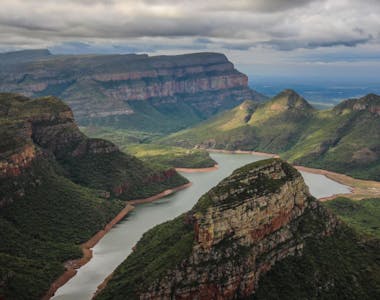
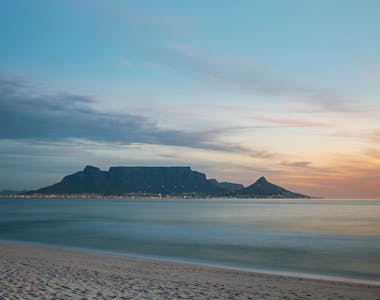
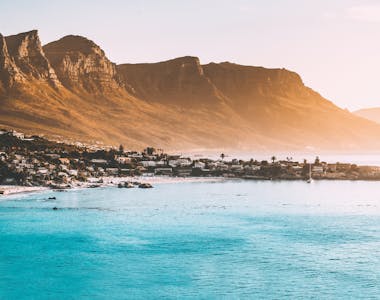
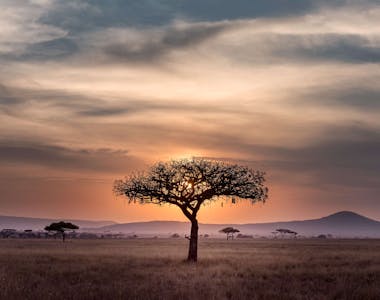
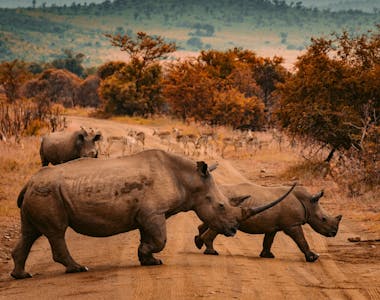
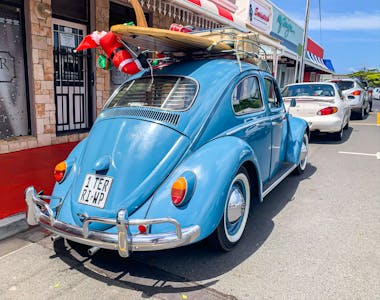
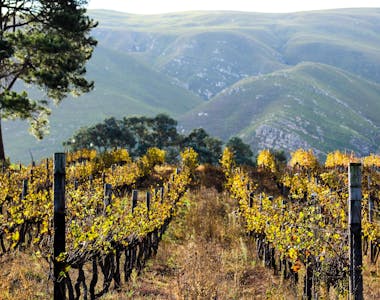
Book With Confidence
Monthly Payments
Spread the costs with no interest or additional fees
Best Price Guarantee
We won't be beaten on price. If you find this adventure at a lower price please get in touch!
Reserve now & pay later
Reserve your adventure today and pay later, free of charge
ATOL protected
Book with confidence
Hold your space today, for free
or book your trip with a deposit and then pay the rest in instalments.
Reserve your flights with us
Add flights to your booking and we'll take care of the rest. You'll get 24/7 support from our team & ATOL protection.
Speak to our experts
Call or email our expert team to find out more and help with ideas and planning.









